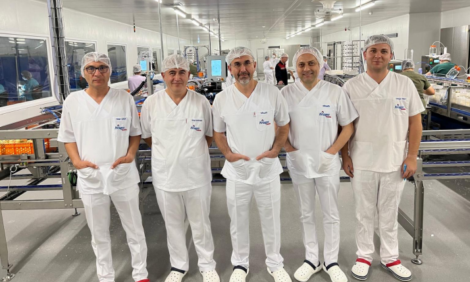



Vet Week Highlights Responses to Food Crises
EU - A series of crises over the past 15-20 years, from BSE and Foot-and-Mouth disease (FMD) to dioxin contamination, led the EU to overhaul its entire Food Safety system, making it today one of the safest in the world.Experience has shown that whilst problems to the food chain will emerge from time to time, what is of paramount importance when prevention proves unattainable is the speedy, decisive and effective response to the challenge.
Crisis management in the Food Chain is the subject of this year's EU Veterinary Week Conference, taking place in Brussels.
The conference brings together representatives from government, industry, and veterinary associations from across the world.
Vets, being responsible for safeguarding animal health, often play a pivotal role in the management of crises in the Food Chain and this year's Veterinary Week highlights this role and the importance of the veterinary profession in the daily lives of EU citizens. This year (2011) has also been declared World Veterinary Year.
John Dalli, Commissioner in charge of Health and Consumer Policy, said: "Since it is impossible to say that there will be no food crises in the future, our response capability must be maintained. We have learned from the past, and we're wiser and better equipped to deal with risks that might reach the food chain. There are around 200,000 vets working across Europe, many of whom contribute directly to the protection of over half a billion people through the food chain, from farm to fork. This year's events put a spotlight on their continuous performance."
More than 400 government, industry and veterinary associations' representatives are taking part in Vet Week 2011.
During its first day, the conference focused on the political, social and economic impact of crisis on the Food Chain and the role of veterinarians in managing such crises. It also examined specific case studies, such as the EU's response to the Avian Influenza outbreaks in 2005 and 2006, the dioxin contamination of Irish pork in 2008 and the issue of German meat that proved to be unfit for human consumption in 2006.
Participants will also discuss the FMD situation in the UK, 10 years after the major outbreaks in the country, various aspects of animal vaccination to combat diseases and the involvement of farmers in crisis preparedness and management. The perspective from a third country (Canada) will also be presented during today's session.









